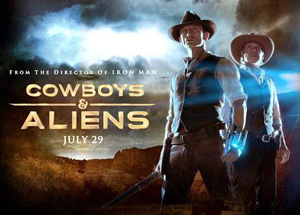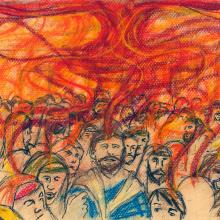Emerging
And church news is little different: pastor so-and-so is embroiled in a moral failing; church such-and-such fired its pastor over leadership differences; and the seminary down the street let go a professor over theological issues. The list goes on and on.
Isn’t it time for something different?
How about a little good news? What about a viral campaign about churches doing well? Well, here is my modest attempt to say a good word about our church community.
"Where my feminists at?" on #OccupyWallStreet. Test your global hunger knowledge. Race and OWS. Poverty in your backyard. How to be a "1 Percenter." OWS to march on banks. Romney embraces climate change denial. Magicians say their craft makes them see faith as little more than "hocus-pocus." Catholic University sued by Muslim students. And faith, political leaders find out how far food stamps actually go.
When I was growing up, there was a house down the street from us which had slightly tattered window coverings and the front lawn was like a graveyard of broken things. Posted on the fence was a "No trespassing" sign. I remember asking my mother what trespassing was so I could be certain not to do it to anyone who lived in that weird house. When she explained that it meant going into their yard uninvited I thought, no problem. Soon after that, when I first learned the Lord's Prayer, I thought it was weird that out of all the sins that Jesus would suggest we ask God to forgive it would be our trespassing. I pretty much made it a policy to stay out of strange yards, and since no one seemed to wander into ours uninvited, I thought I was covered. Only later did I realize that trespassing was only one of countless was to trespass against others. And now I get it -- kind of. Forgive us our sins as we forgive those who sin against us. Jesus always seems to be pairing God's forgiveness of us with our forgiveness of others.
I woke up on the morning of September 11, 2001 both nervous and excited. I had spent the last two months slowly proceeding through the application and interview process for an entry-level editorial position at Christianity Today to work with their Christian History and Christian Reader magazines. I'd had multiple interviews and had to write a few research heavy articles along the way. For someone with degrees in English and History and a graduate degree in Missions, it seemed like the perfect job. My final evaluation involved joining the staff at an all day off-campus retreat, where they would be evaluating potential articles for magazines. I was a bit nervous, but an insider in the company had told me the job was mine, so the excitement of finally landing my first real job after school prevailed.
So on the morning of September 11, I arrived at the country club where the retreat was being held and situated myself at the conference table in a room with a panoramic view of the far west Chicago suburbs.
Deep down I don't believe in the separation of church and state. Oh, I am against the idea of a state church or giving political preference to one religious sect or another, but it's the idea that somehow people can divorce their religious identity from their political identity that I just can't accept. That either our religion or our politics mean so little to us that we could restrict them to compartmentalized spheres in our lives seems absurd to me. I know people attempt to do it all the time, believing in the modern myth that an individual can assume an objective stance in this world, but reality is a lot more complex than that.
In reading some of the responses to my last post Embodied Theology, I was reminded of an essay I wrote for a class last semester, so I've rewritten part of it as a blog post to help clarify my position.
Embodied theology is rooted in the doctrine of creation. Why did God create us? As some have proposed, God couldn't not create or love us -- it's just part of God's nature. As a relational giver and lover within the Trinity, God couldn't help but be the same thing in relation with humanity. Who we are comes from God. We are not by nature sinful broken creatures, but creatures shaped in the very image of God.
Earlier this summer I attended a church service where the pastor, a man struggling with what appears to be his final bout with cancer, preached about the hope that Jesus promises to those who trust in him. After describing the returning Jesus brandishing a sword and dripping with the blood of all our vanquished enemies, he invited the audience to share what they saw as the hope that this Jesus promises. The responses ranged from no cancer, to no pain, to no worries about paying the bills, to the promise of an upgraded body -- all of course in heaven someday after we die. The congregation was encouraged to find contentment in the present from the possibility of realizing these promises someday. Our souls are what matter; the body just has to endure until our souls reach heaven. No mention of help with how to pay this month's rent or what it means for a cancer-ridden body to be the temple of the Holy Spirit, just the spiritual promise that someday all will be well.
 Americans have a hard time knowing how to respond to the sins of our colonial past. Except for a few extremists, most people know on a gut level that the extermination of the Native Americans was a bad thing. Not that most would ever verbalize it, or offer reparations, or ask for forgiveness, or admit to current neocolonial actions, or give up stereotyped assumptions -- they just know it was wrong and don't know how to respond. The Western American way doesn't allow the past to be mourned or apologies to be made. Instead we make alien invasion movies.
Americans have a hard time knowing how to respond to the sins of our colonial past. Except for a few extremists, most people know on a gut level that the extermination of the Native Americans was a bad thing. Not that most would ever verbalize it, or offer reparations, or ask for forgiveness, or admit to current neocolonial actions, or give up stereotyped assumptions -- they just know it was wrong and don't know how to respond. The Western American way doesn't allow the past to be mourned or apologies to be made. Instead we make alien invasion movies.
John Stott died this Wednesday. He was 90 years old. What many people don't understand is that he was the most influential 20th-century evangelical leader in the world, with the exception of Billy Graham. Stott became the Anglican rector of All Souls Church in downtown London at the age of 29 in 1950, and he stayed there for his entire ministry. But from his parish at Langham Place in the city's West End, and right across from BBC headquarters, John Stott spoke to the world with 50 books that sold 8 million copies. He also traveled the globe , speaking, teaching, convening, mentoring, and bird watching -- a personal passion.
Perhaps the most telling thing about this man is all the personal stories about "Uncle John" that the world is now hearing, from many Christian leaders around the world who were profoundly influenced, encouraged, and supported by John Stott. And secondly, how such a giant in the Christian world remained so humble, as testified to by those who knew him who say how "Christ-like" he was.
He put before them another parable: "The kingdom of heaven is like a mustard seed that someone took and sowed in his field; it is the smallest of all the seeds, but when it has grown it is the greatest of shrubs and becomes a tree, so that the birds of the air come and make nests in its branches." He told them another parable: "The kingdom of heaven is like yeast that a woman took and mixed in with three measures of flour until all of it was leavened."
The kingdom of heaven is like treasure hidden in a field, which someone found and hid; then in his joy he goes and sells all that he has and buys that field. Again, the kingdom of heaven is like a merchant in search of fine pearls; on finding one pearl of great value, he went and sold all that he had and bought it.
--Excerpts from Matthew 13
It's been a rough weekend. Watching the devastation that the combination of mental illness and fundamentalism brought to the people of Norway. Watching what the combination of drug addiction and fame brought to a talented singer, who, like so many who went before her, is now dead at the age of 27. Something they don't tell you when you get clean and sober is that if, by the grace of God, you manage to stay that way -- you get a much better life -- but year after year you also watch people you love die of the same disease. So yesterday when I heard that Amy Winehouse had been found dead in her home, it brought me back to nine years ago when my dear friend PJ was also found dead in his home.

But one thing has not changed even a little bit is the human condition. Parts of the Bible can feel hard to relate to until you get to a thing like this reading from Romans 7, in which Paul says, "I do not understand my own actions. For I do not do what I want, but I do the very thing I hate. I can will what is right, but I cannot do it. For I do not do the good I want, but the evil I do not want is what I do."
Finally. Something I can relate to. This I know about. I too do not understand my own actions. I too can't manage to consistently do what I know is right. Paul's simple description of the human condition is perhaps a most elegantly put definition of what we now call addiction.
It's no secret that I am a recovering alcoholic. By the grace of God I have been clean and sober for more than 19 years. But, boy, do I remember that feeling of powerlessness that comes from not being able to control your drinking. I'd wake up each morning and have a little talk with myself: "OK Nadia, get it together. Today is going to be different. You just need a little will power." Then, inevitably, later that day I'd say, "Well, just one drink would be OK," or, "I'll only drink wine and not vodka," or, "I'll drink a glass of water between drinks so that I won't get drunk." And sometimes it worked, but mostly it didn't. In the end, my will was just never "strong enough" Like Paul, I did the thing I hated. But that's addiction for you. It's ugly. Yet on some level I feel like we recovering alcoholics and drug addicts have it easy. I mean, our addictions are so obvious. The emotional, spiritual, and physical wreckage caused by alcoholism and drug addiction has a certain conspicuousness to it.
The other day I read some interesting statistics about how social media is shaping our lives . It is interesting to see the response to this and recognize the different ways in which we grapple with deluge of social media in relation to our faith. There are lots of resources emerging to help us maintain a strong and vibrant faith in the midst of this. I wanted to highlight a couple that I have found very useful
 Seeking justice for the oppressed. Working to end the connection of child slavery to chocolate. Helping heal a devastated Haiti. Mobilizing young people to respond to a story of redemption by imaginatively working to build a better world. I think many of us Christians would hope that those words were describing the work of the body of Christ, intent on following the path of Jesus Christ in this world. In this case, they are actually descriptions of the Harry Potter Alliance. That's right -- the Harry Potter Alliance.
Seeking justice for the oppressed. Working to end the connection of child slavery to chocolate. Helping heal a devastated Haiti. Mobilizing young people to respond to a story of redemption by imaginatively working to build a better world. I think many of us Christians would hope that those words were describing the work of the body of Christ, intent on following the path of Jesus Christ in this world. In this case, they are actually descriptions of the Harry Potter Alliance. That's right -- the Harry Potter Alliance.
My favorite characters in The Lord of the Rings are the Ents -- an ancient race of giant living, talking, breathing trees in J.R.R. Tolkien's fictional land, Middle Earth. I have a little confession to make: Whenever I hear a reading from Isaiah 55 where it says, "The mountains and hills before you shall burst into song and all the trees of the field shall clap their hands," I always picture the Giant Ents from The Lord of the Rings. And then I picture these clapping trees from Isaiah holding little Hobbits in their branch arms in what ends up a willful conflation of Middle Earth and Major Prophet.
I very much appreciated all the good things that Lucy Bryan Green had to say about "The Family" in the June 2011 issue of Sojourners m
